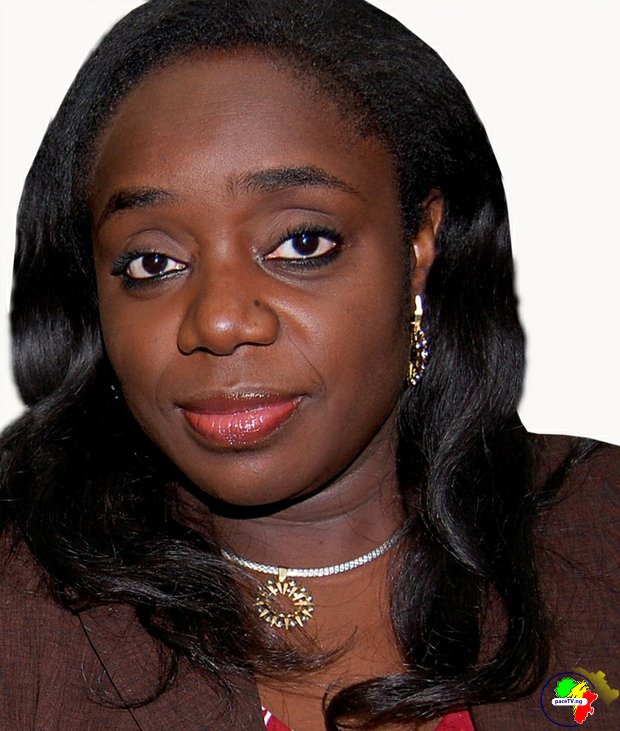Kemi Adeosun, a former investment banker and London-trained accountant, may be Nigerian President Muhammadu Buhari’s pick for finance minister, according to analysts including Bismarck Rewane, chief executive officer of the Financial Derivatives Co.
Adeosun, who was finance commissioner of Ogun state in the south-west of Nigeria for the past four years, is the most likely candidate to fill the role from a list of cabinet nominees Buhari sent to lawmakers, said Rewane and Manji Cheto, vice president of risk adviser Teneo Intelligence.
“Adeosun has a strong background,” Rewane said by phone on Tuesday from the commercial capital, Lagos. “She has a lot of energy and is high on integrity. She’s pro-reform and is a realist.”
A protest against Adeosun’s possible confirmation by the Nigerian Senate has already surfaced.
Debo Adeniran, head of the Coalition Against Corrupt Leaders, criticized Adeosun as a misfit for the task, citing “her many scandals premising on financial mismanagement, questionable and self-beneficial transactions of government businesses, wastefulness, acquisition of questionable wealth, ineptness and graft,” according to an article at Naija247news.com.
In a petition titled “Kemi Adeosun’s Ministerial Nomination; CACOL Discovers Another Misfit,” Adeniran also alluded to reports that “Mrs. Kemi Adeosun has been parading a dual citizenship (British/Nigerian); a status that constitutionally disqualifies her from holding such office,” Naija247news reported.
The news outlet also reported that CACOL published a press release titled, “Ten Things People Need to Know About Mrs Kemi Adeosun, Former Commissioner for Finance, Ogun State,” alleging that Adeosun’s four-year stint in Ogun State “left behind a trail of financial mismanagement, immeasurable ineptness and unspoken avarice.”
Buhari’s cabinet nominations come more than four months after the 72-year-old former military leader took office on May 29 following a decisive election victory over the incumbent Goodluck Jonathan. His finance minister will need to restore confidence in Africa’s biggest economy in the face of plunging oil revenue, foreign-currency restrictions, slowing growth and attacks by Boko Haram militants.
Senate President Bukola Saraki on Tuesday published the list of 21 people who make up the first group of ministerial nominees proposed by Buhari, who hasn’t yet disclosed which portfolios the candidates will lead. The Senate will begin vetting the candidates on Oct. 13, Saraki said in the statement. The presidency will only announce the portfolios for each person once lawmakers have approved them, Femi Adesina, a spokesman for Buhari, said by phone from Abuja, the capital.
Adeosun has degrees in economics and public financial management from universities in London, according to her LinkedIn profile. She worked for PricewaterhouseCoopers LLP in London and at Chapel Hill Denham Ltd., a Nigerian investment bank, before becoming finance commissioner in of Ogun state in 2011. It has the seventh smallest economy of Nigeria’s 36 states, according to Renaissance Capital.
Adeosun may struggle to convince Nigerians she is right for the job because she doesn’t have a high profile like her predecessor, Cheto said by phone from London. Ngozi Okonjo- Iweala, who stepped down as finance minister after Jonathan lost the election to Buhari in March, was previously a managing director at the World Bank.
Oil Minister
Lai Mohammed, a member of Buhari’s All Progressives Congress who is also on the list, said he didn’t know which portfolio he was being lined up for.
“It would be presumptuous of me to say which post I thought I’d get,” he said by phone from Abuja.
Buhari nominated four former state governors and the current head of the national oil company, Emmanuel Kachikwu, as ministers. Candidates include Rotimi Amaechi, 50, who governed oil-producing Rivers state from 2007 until this year, and Babatunde Fashola, 52, who led Nigeria’s biggest state, Lagos.
The president has said he wants to serve as Petroleum Minister. He has vowed to clamp down on graft and “mind- boggling” theft in the oil sector, Africa’s largest and which accounts for two-thirds of government revenue and almost all the country’s exports.
Economic growth slowed to 2.4 percent in the second quarter, the slowest pace this decade, as falling income from crude exports and foreign-exchange shortages hit businesses.













